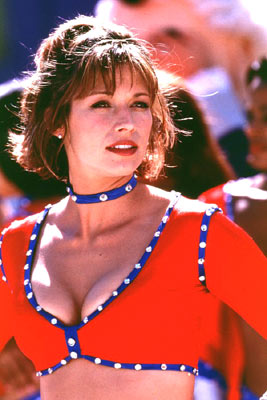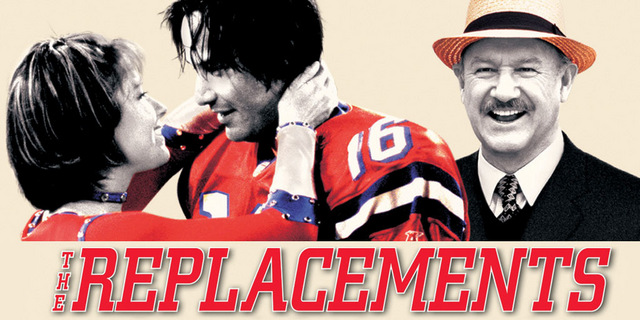With NFL millionaires flaunting their hatred of America, and contempt for at least half of their fan base, now looks like a good time to plug one of the best comedy jock flicks ever made.
“Every athlete dreams of a second chance,” proclaims Coach Jimmy McGinty (Gene Hackman) in voiceover toward the end. Second chances is what this movie is about, at it’s core. All the jokes, action, and Sports Movie Formula might distract you from that central theme; but those frills are not what resonates with the masculine soul while watching it.
Inspired by the NFL players’ strike in the late 1980s (before Joe Gibbs’ Washington Redskins went on to destroy the Denver Broncos in the Superbowl), the story begins with crybaby millionaire star quarterback Eddie Martel throwing a game in order to avoid getting tackled. The end of the game marks the beginning of the players’ strike.
The owner of the “Washington Sentinels,” hungry for a playoff berth despite the strike, woos “controversial” (old-fashioned) coach McGinty into putting together a roster of replacement players to finish the season.
Turns out, McGinty has been tracking some former players with great potential who, for various reasons, never made it in the pros. “If nothing else,” McGinty says, “they should be fun to watch.”
And they are.
Unfortunately, there are only so many plots available for a sports movie. It is a credit to the director that there are enough twists in The Replacements to make it stand out despite the formula.
The movie does have flaws. The romantic subplot, for instance, comes off as tacked-on and superficial. I suspect the scenes that might have fleshed it out wound up on the cutting room floor. It probably should have been left out altogether, so that other scenes didn’t have to be pared down for the sake of running time (Shane Falco’s first pass in the first practice was obviously two scenes cut together). But the compromises that weaken the film are not why the critics hate it.
But the compromises that weaken the film are not why the critics hate it.
There’s none of the obligatory LGB-pandering anywhere in the film (except, perhaps, in a tres risque pantomime by the strippers-turned-cheerleaders on the sidelines at one game). The screenwriters didn’t contrive some way to put a female on the team–even as a kicker. Comraderie and male-bonding are celebrated throughout, and men act like men. When a female reporter invades the locker room, she gets little cooperation from the players and is ultimately convinced to give up and leave the “male space” intact. The bulk of the entire movie is an unapologetic celebration of masculinity guaranteeing that it could never get made today.
In fact, it’s amazing it got made 17 years ago, because the culture was deeply pozzed by then, already. Instead of watching the anti-American NFL bite the hands that feed them on Sunday, check this flick out.

